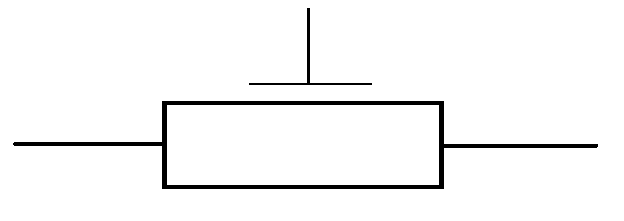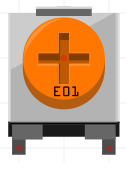TrimPot
Trim-pot is also known as Trimmer
Potentiometer. Trim-pots are very small in size and one of the variable
resistors. It is a three-terminal device, and it has a knob to
vary the resistance manually. Due to their size,
these are widely used in PCB mounting. Trim-Pots are
designed for highly sensitive tuning devices, so by using this device we can
get highly calibrated readings.
Other names: Preset, Variable resistor.
Other related devices: Potentiometer, SMD Potentiometer, Digital potentiometer
What is Trim-Pot
In general, it is called a potentiometer, variable resister, preset, and Trimmer Potentiometer but there are slight variations in all like (size, power handling, calibrated readings).
Trim-pot Consists of:
1. Resistive Element
2. Wiper unit (Movable contact)
3. End terminal
4.Contact Actuator (Adjustable Skrew, Knob)
Difference between preset and potentiometer
Preset and potentiometer are worked like same
and the resistance values are the same
- For example the same 10kΩ resistance value is available in preset and potentiometer, but the difference is how much amount of power it can handle.
- Preset are used to handle the less amount of power, the potentiometer is used to work with high power ratings.
- Preset designed for PCB mount, the potentiometer is designed with variable knob (example volume controller)
- Preset are available in small packages, the size of potentiometer is bigger than the preset.
What is the need of Preset-Trimpot
The value of the resistor is fixed, does not
change by the user for example consider 100kΩ resistor its value is fixed we can not change its value
Problem with fixed resistors
We are going to design a system based on
the properties of the components, unfortunately, there is a chance to change the
some property of the component, then the design will failure
In this type of situation if we use the
preset we can change the resistance at any time
Preset or Trimpot Advantage
Preset or Trimpot are used for PCB circuit
designs, they are available in small packages, in any circuit designs to set the variable resistance we need to use
the preset or Trimpot, these allow the user to change the resistance even
after the circuit design is completed due to this we can set the sensitivity of
the circuit at any time by varying the resistance.
Types of Trim-pot
1. Multi-Turn-Trim-pot
Multi-Turn gives high precise value than Single-Turn, so it performs multiple rotations (turns) from 0-25 turns, these are highly used in Tunning Circuits, these can be manufactured with Wire-Wound or Cermet materials.
Cermet Trim-pot Resistance range: 10 ohms to 10M ohm
wire wound Trim-pot Resistance range: 10 ohm to 50K ohm
Lead-Screw Actuated (Multi-turn-trimmer)
Turns: 15-25 Shap: Rectangular Case Wiper Unit: Linear wiper path Standard Resistors in Wire-Wound: 3005 3010, 3057. Standard Resistors in Cermet: 3012, 3059, 3082, 3006.
Warm-Gear Actuated (Multi-turn)
Turns: 10-25 Shape: Square Case Wiper Unit: Circular wiper movement Standard Resistors in Wire-Wound: 3250, 3260, 3290. Standard Resistors in Cermet: 3252, 3292, 3299.
1. Single-Turn:
Single-Turn adjustment not as precise as Multi-Turn-preset, it turns only one rotation(360-Degrees), due to its functionality it gives only a few readings.
Surface Mount - SMD (Single-Turn-preset)
Center-Tap (Single-Turn-preset)
Applications
- OP-AMP Zero adjustment (Multi-Turn-preset)
- Oscillators frequency adjustment (Multi-Turn-preset)
- Voltage Regulators (Single -Turn-preset)
- Volume controllers
- Multi vibrators
- Adjust the sensitivity of a design.
IEC Standard
 |
| Trim-Pot Resistor |
 |
| Preset-Resistor |
DATA SHEET
Other Articles
Digital Potentiometer
SMD-Resistor
Resistor
3006p-103








0 Comments